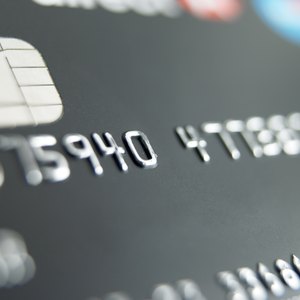
Getting a credit card at 18 has a number of benefits for a money-savvy teen. Proper use can help a young person start to build a positive credit rating, provided the card is used wisely. Credit cards can offer convenience, access to fast cash, and secure payment options. Cards can also contribute to finances spiraling out of control if the user is irresponsible or unable to meet minimum monthly payments.
Building Credit
An 18-year-old who secures a credit card and uses it appropriately can start establishing a good credit history. This can be essential when applying for loans in the future. Proper use of a credit card will demonstrate good fiscal responsibility and establish a positive borrowing track record.
Basic Budgeting
A credit card can be a useful tool for helping a teenager track spending. It can also help create a sense of financial responsibility, particularly if the teenager is solely responsible for repaying debt on time. Credit card payments must be made regularly, so must be included in a responsible budget.
Emergency Use
A credit card can be a lifesaver for an 18-year-old who is stranded in a broken-down vehicle or has a financial or medical emergency and is unable to contact another responsible adult to help with financial needs. Teens must know the difference between a true emergency and a financial “want.”
Online Purchasing
Credit cards are essential tools for making online purchases, which is something that many teenage consumers do. Credit cards are also required for number of expenditures that require some sort of financial “hold” or deposit, such as renting cars or securing lodging and airfare.
Misuse
It can be easy to let spending get out of control when using a credit card. This is especially true for a young person managing credit solo for the first time. Excessive purchases can quickly accumulate, leaving an 18-year-old with an interest-heavy debt that needs to be repaid.
Credit Problems
Getting behind on credit card payments can be a risky financial proposition. Late payments can trigger fees, penalties and increased interest rates, which can become costly. Failure to make credit card payments can also damages long-term borrowing ability.
Debt Repayment
Many 18-year-olds are completing high school or attending college, and likely have only part-time, temporary or flexible employment. If a steady income is unlikely, that can make repayment of credit card debt a tricky proposition.
References
- MSN Money: Why You Should Use a Credit Card
- USA Today: Debit Card or Credit Card? Here are the Pros and Cons
- AnnualCreditReport.com. "All about credit reports." Accessed Aug. 27, 2020.
- Discover. "FREE Credit Scorecard with your FICO Score." Accessed Aug. 27, 2020.
- myFICO. "Free Credit Scores Estimator: Get Your Estimated FICO Scores Range." Accessed Aug. 27, 2020.
- U.S. Congress. "H.R.627 - Credit CARD Act of 2009." Accessed Aug. 27, 2020.
Writer Bio
Lisa McQuerrey has been an award-winning writer and author for more than 25 years. She specializes in business, finance, workplace/career and education. Publications she’s written for include Southwest Exchange and InBusiness Las Vegas.

